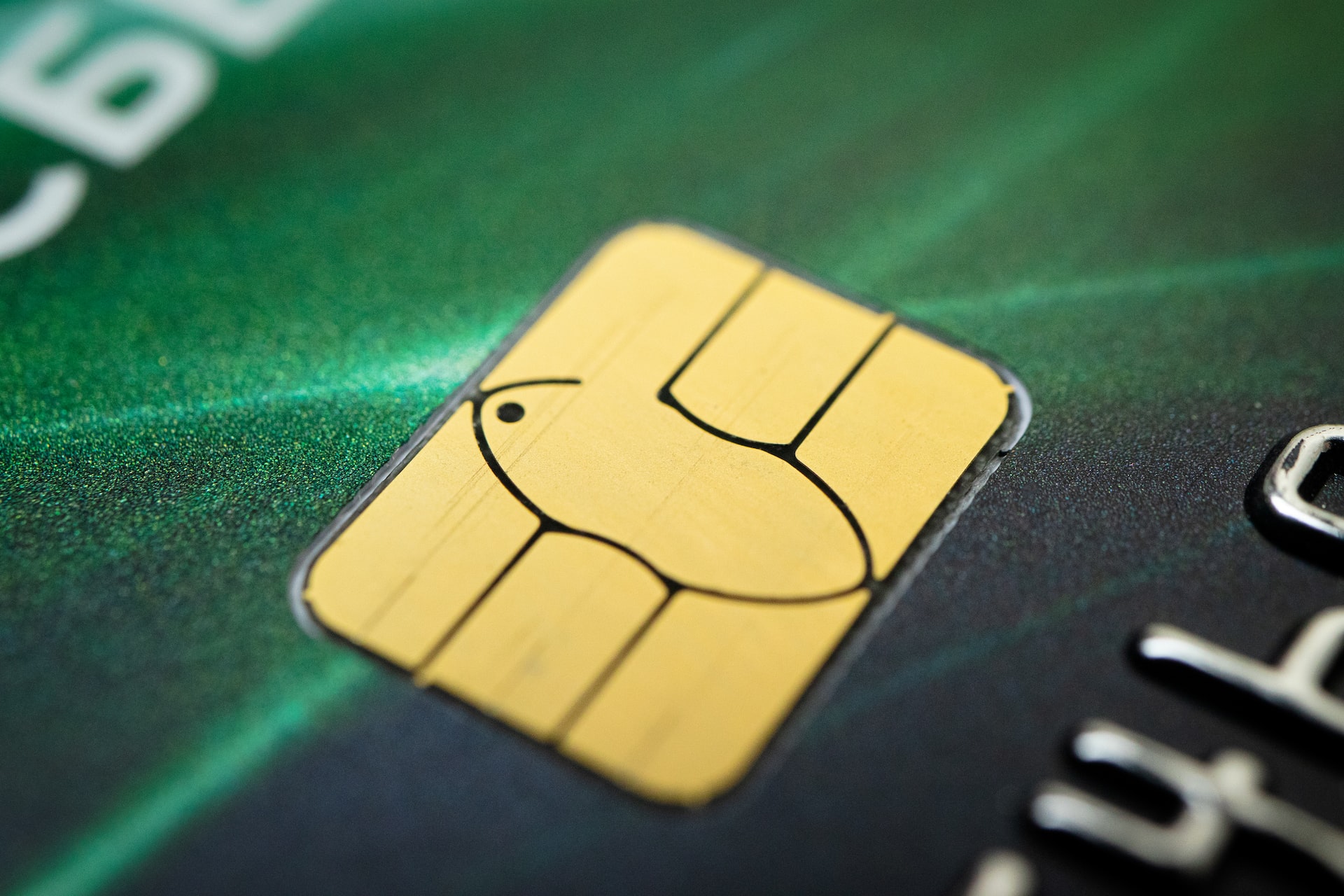Many people use credit cards to simplify payments. You don’t have to reach into your pocket at a local store or worry about an overdraft fee from your debit card. However, some people avoid credit cards because they don’t want to incur any debt. Credit cards have higher interest rates than many loans, but these financial products can strengthen your credit score. We will discuss how using a credit card can improve your credit and some risks to consider before getting started.
Introduction to Credit Cards and Credit Scores
Before diving into the specifics of how credit cards impact your credit scores, it’s worth exploring how your credit score is calculated.
Factors That Affect Your Credit Score
The FICO credit score is the most prevalent model – it’s used by more than 90 percent of lenders and creditors to make credit decisions. Your FICO score, which ranges from 300 to 850, consists of five components:
- Payment history (35 percent of your FICO score)
- Amounts owed (30 percent of your FICO score)
- Length of credit history (15 percent of your FICO score)
- Credit mix (10 percent of your FICO score)
- New credit (10 percent of your FICO score
Your credit score is influenced by several factors. These include your payment history, the amounts you owe, the length of your credit history, new credit, and the types of credit in use. Payment history and credit utilization (the amount of credit you use relative to your limit) heavily impact your score. Credit bureaus closely monitor these variables on your credit report.
Common Misconceptions About Credit Cards and Credit Scores
Carrying a balance on your credit cards can potentially help your score, depending on how much you owe. But it’s your payment history that has the most significant impact on your credit score. Here are some other common misconceptions about credit cards and credit scores to be aware of.
Closing Unused Credit Card Accounts
Closing unused credit accounts may seem like a smart financial move, but it could backfire. Doing so could increase your credit utilization rate and do more harm than good. Furthermore, closing an old but idle account will impact your credit age and could also damage your credit score.
Paying Off All Debt Immediately
Whether you use your reserves or inherit a lump sum of cash to pay your debt in full, it’s in your best interest to keep revolving accounts open. Creditors and lenders evaluate your credit history and the average age of your accounts along with your credit mix. So, closing these accounts could hurt your rating.
How Getting a Credit Card Improves Your Credit Score
Credit card usage will influence multiple categories of your credit score. Using your credit card can increase your score over time. A higher credit score helps you get lower interest rates on your loans and borrow more money from the bank. The benefits of a high credit score extend into other areas as well. Landlords will look at a tenant’s credit history before letting them live on the property. Employers may check your credit report to determine if you are the right fit for the job. Even insurance companies look at your credit scores when deciding on premiums. A higher credit score can entitle you to a more affordable insurance policy.
Credit cards give consumers an easy and simple resource to improve their credit scores. Opening a credit card and using it to make payments will impact your credit score in the following ways.
Credit Utilization
Credit utilization measures how much you have tapped into your credit line. For example, if your credit card has a $5,000 credit limit and you have $1,000 in credit card debt, you have a 20% credit utilization ratio. Keeping this ratio below 30% will improve your score, but it’s optimal to have a credit utilization ratio below 10%. You can improve your credit utilization ratio by getting a higher credit limit and paying off the balance. Credit utilization makes up 30% of your credit score and is the second largest component of your FICO score.
Credit Mix
Your credit mix is a key category that impacts 10% of your FICO score. Taking more loans and revolving lines of credit provides a more diverse credit mix. The major credit bureaus want to see that you can manage multiple financial obligations, and it will help you get a better loan. A credit card strengthens your credit mix since it is a line of credit. Demonstrating your ability to handle a credit card and other financial products will improve your score.
Additional On-time Payments
On-time payments are the best way to increase your credit score. Payment history makes up 35% of your credit score and shows lenders that you can keep up with expenses. Making on-time loan payments improves your payment history. On-time payments on student loans and mortgages will also improve your credit score.
Regular and Responsible Use of Credit Card
Credit cards make it easier to build your payment history. For example, every purchase you make can increase your history of on-time payments and complement on-time loan payments. You can build your credit every time you go to the grocery store or buy products online. Credit cards create more opportunities to build up your history. You can make the minimum payment and be in good standing. Still, making more than the minimum payment is best to protect your credit utilization ratio and avoid debt accumulation.
How Getting a Credit Card Can Hurt Your Credit Score
A credit card can work wonders for your credit score and help you qualify for better loans. Lenders will look at your credit score before deciding how much to let you borrow for a mortgage. But, while a credit card can help you build a good credit score, it can hurt your score if you aren’t careful. Every purchase can turn into a credit-building opportunity, and therein lies the benefits and pitfalls of credit cards. The cards millions have come to use for everyday purchases can hurt your score in the following ways.
Hard Inquiries on Your Credit Report
Whenever you apply for a new loan or line of credit, you get a hard inquiry on your credit report. Hard inquiries allow creditors to analyze your financial health more in-depth. It also helps a lender determine if you have the necessary credit score to get financing. Most banks, credit unions, and online lenders have minimum credit score requirements to take out a loan or line of credit. Hard checks make creditors feel more confident about entrusting you with financial products, but they will hurt your credit score. You will also go through a hard credit check if you apply for an unsecured credit card (i.e., you don’t need to make a security deposit to get the card as you would if you got a secured card).
A single hard inquiry won’t devastate your credit score, and you’re only likely to lose a few points. It won’t take much time to make up ground, especially as you build a solid payment history. Hard inquiries become more worrisome if you apply for numerous credit cards and other types of financing simultaneously. You won’t have to worry much about a hard credit inquiry if you apply for one credit card and get approved.
Length of Your Credit History
Your credit history’s length impacts your score. It makes up 15% of your FICO score. Borrowers with lengthier credit histories get higher credit scores. More experience makes a borrower more trustworthy to a lender. Opening a credit card gives you an additional credit history. New credit cards will not hurt your score, but closing an older account can reduce your score by a few points.
You should keep older credit cards open even if you do not use them anymore. That’s because each deleted credit account reduces the average age of your credit accounts. The credit history from older accounts will continue to bolster your score, even if you don’t use them. It’s important to keep in mind that some credit card issuers will automatically close your credit card if it remains inactive long enough. Putting a single monthly subscription on an older credit card will provide enough activity to keep your account open. It may only make sense to close a credit card if the issuer charges a high annual fee and you no longer use the card. If you have one of these cards, wait until you don’t need another loan for several months until you decide to close it.
Higher Balances
A higher credit balance will put you closer to your credit limit and raise your utilization ratio. Creditors will get nervous if they see a high credit utilization ratio, especially if it’s above 30%. A higher percentage indicates that it takes longer for the borrower to repay debts. A lender may be skeptical about giving out loans to people with high credit utilization ratios. Struggling to keep up with credit card debt doesn’t paint a good picture of a consumer’s ability to keep up with additional loan payments. You should only use your credit card for purchases you can quickly repay. Letting the balance accumulate can make it more difficult to get better loans when you need them.
A common trap is to only make the minimum payment. Although the minimum payment will protect you from additional fees, your credit card’s balance will remain high and increase due to interest. Credit cards have double-digit interest rates, and the debt can snowball quickly if you are not careful. If you avoid an excessive balance, you are less likely to fall into this trap.
You can consider a balance transfer to minimize the pain of a high credit card balance. During this transfer, you get to pay 0% APR during the introductory period. In addition, since interest doesn’t accumulate, you get an opportunity to ensure every credit card payment reduces the principal.
Not Paying What You Owe
On-time payments will strengthen your credit score, but late payments will have the opposite effect. Making late payments on your credit card will raise doubts about your ability to handle additional debt. A lender’s primary objective is to make money from borrowers who can pay the loan on time. This critical objective explains why payment history is the most important credit score category for your FICO score and VantageScore. Any late payment stays on your credit report for seven years, making it important to always pay on time.
Credit cards defer payments on everyday purchases. You should monitor your finances and establish a budget to avoid overspending. Keeping up with credit card payments helps you avoid most of the pitfalls of owning a credit card. On-time payments remove the disadvantages and allow you to tap into the perks.
Making the minimum monthly payment will keep you in good condition. The credit bureaus will see a steady history of on-time payments and gradually increase your score. Transformations don’t happen overnight, but staying true to the minimum payment will help you in the long run. When you have extra funds, you should make a higher payment to address the remaining balance beyond the minimum payment. This approach decelerates interest accumulation in your credit card balance.
Even if you make on-time payments, a credit bureau may mistakenly label one of your payments as late. Credit report errors are rare, but it’s a good idea to check them occasionally. The three major credit bureaus — Experian, Equifax, and TransUnion — let you obtain a free copy of your credit report every year. You can alternate your requests to once every four months to ensure you never have to pay for a copy of your report.
How Much a Credit Card Can Improve Your Credit Score
Opening a new credit card provides immediate benefits, such as a higher credit limit. The higher credit limit will improve your credit utilization ratio, and your credit history will gradually increase once you open your card. In addition, on-time payments and maintaining a respectable credit utilization ratio will strengthen your credit score in the long term. Credit score improvements vary, but if you pay your bill on time, your score will grow over time.
If you’re looking to improve your credit score even more, The Credit Pros can help you boost your overall credit health. With their personalized solutions and expert guidance, you can learn how to effectively manage your credit accounts and achieve financial stability.
Contact The Credit Pros today for a free consultation with no obligation to sign up. Call (727) 306-8201 or fill out a form to get started on improving your credit score with the help of The Credit Pros. With their 100% 90-day money-back guarantee and commitment to helping you succeed, you can trust that they have the expertise to assist you in reaching your financial goals. Let them help you take control of your credit and achieve financial stability today.
Some Expert Tips on Balancing Credit Card Use
You can leverage credit cards to boost your credit health; these tips can help you maximize the impact.
How to Decide on the Number of Credit Cards to Hold
There’s no one-size-fits-all answer to this question. If you have several cards at once, you get the luxury of accessing a higher total credit limit. Still, you risk burying yourself in a mountain of debt if you’re not disciplined enough to keep spending under control. You could also damage your credit score if you have trouble keeping track of multiple credit cards. So, only open credit cards as needed, spend responsibly and make payments on time to allow them to work in your favor.
Importance of a Balanced Credit Mix
As aforementioned, credit mix accounts for 10 percent of your FICO score. Creditors and lenders like to see a balance of revolving (e.g., credit cards, lines of credit) and installment (e.g., mortgages, personal loans, auto loans) accounts on credit reports. A blend of these accounts demonstrates your history of managing different types of debt.
The Ideal Credit Utilization Rate
A credit utilization rate not exceeding 30 percent is ideal, but getting this figure to 10 percent or lower gives you an even better shot at a strong credit score. So, if your credit limit is $3,000, aim for a balance of $300 if possible. But don’t fret if you’re unable to reduce your balance right away to hit the ideal credit utilization target. Allocate what you can each month toward the balance(s), and your credit score will likely improve over time.
Conclusion: Does Getting a Credit Card Improve Your Credit Score?
A credit card can have both positive and negative effects on your credit score. Your credit utilization rate will improve, and you get a shot to diversify your credit mix if you don’t already have a credit card. Plus, the added on-time monthly payments will improve your credit history. But opening a new card is not without downsides, as your credit age will drop, and you’ll get a hard inquiry on your report.
Be sure to evaluate your financial situation to decide if a new credit card is a smart move. If you move forward, make timely payments and keep your balance low to preserve your credit health and achieve an excellent credit score.
Frequently Asked Questions (FAQs)
This figure varies depending on the information in your credit profile. That said, expect a slight negative impact when you apply for a new credit card account due to the hard inquiry and change in your credit age.
You could see positive changes in just a few months. Make credit card payments on or before the due date and keep your utilization rate low to give yourself the best chance of seeing improvements sooner rather than later.
Opening multiple credit cards can increase your total available credit. This may improve your credit utilization rate if outstanding balances are kept low. However, each application results in a hard inquiry, which could hurt your score. And you’ll also need to manage these accounts responsibly to protect your credit rating.







